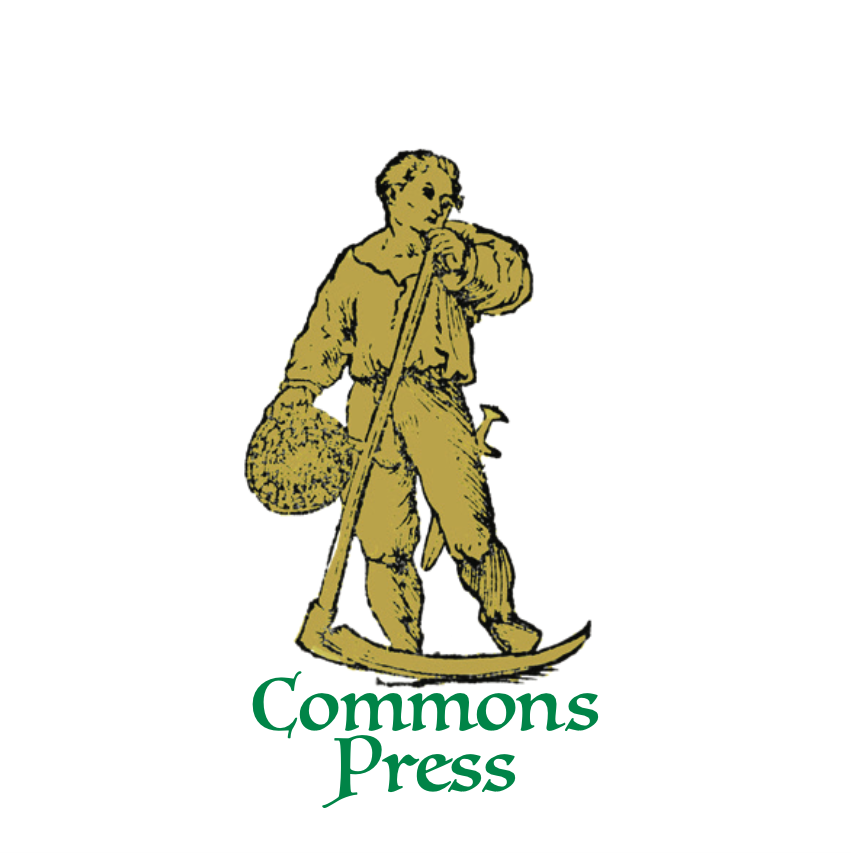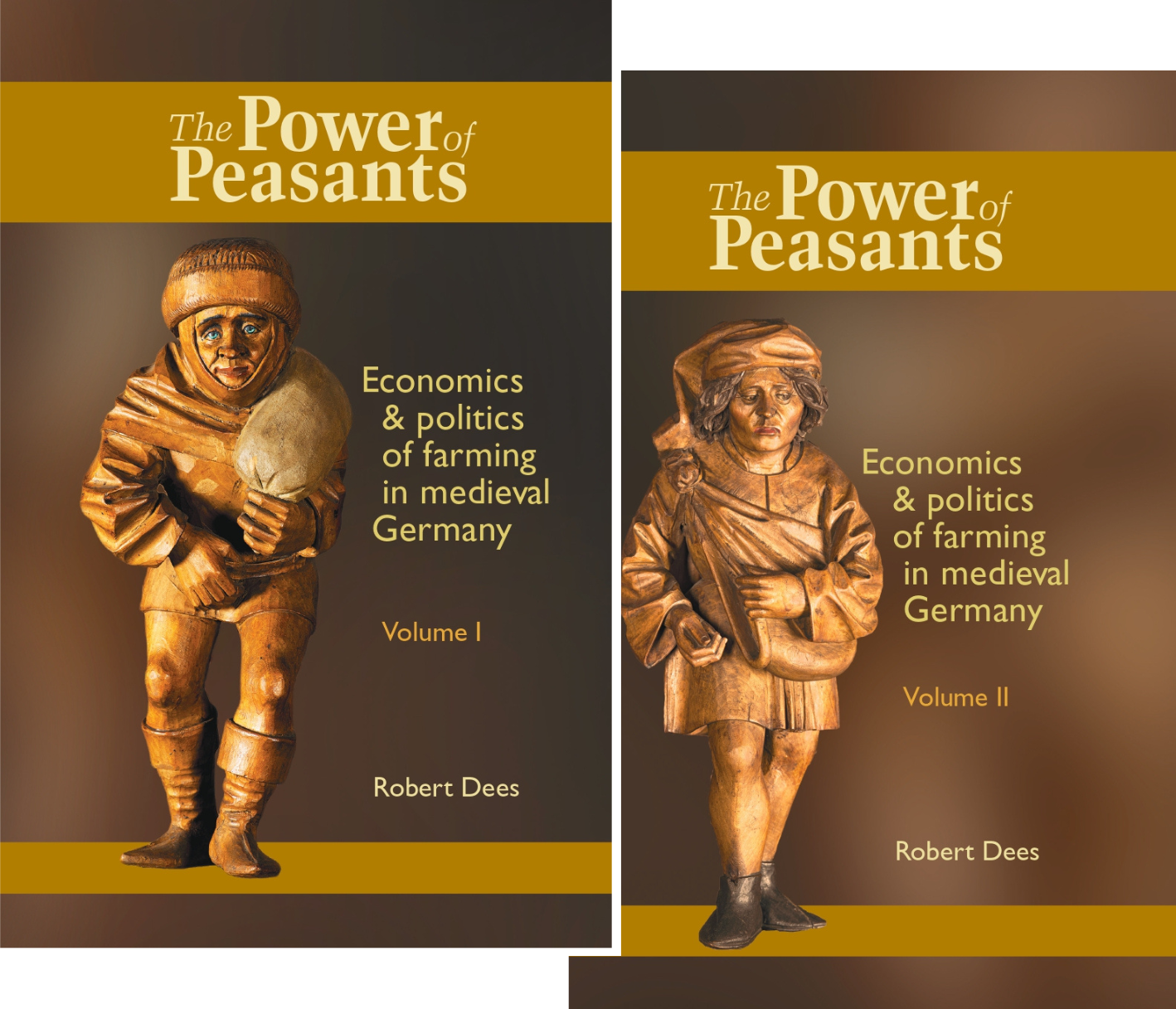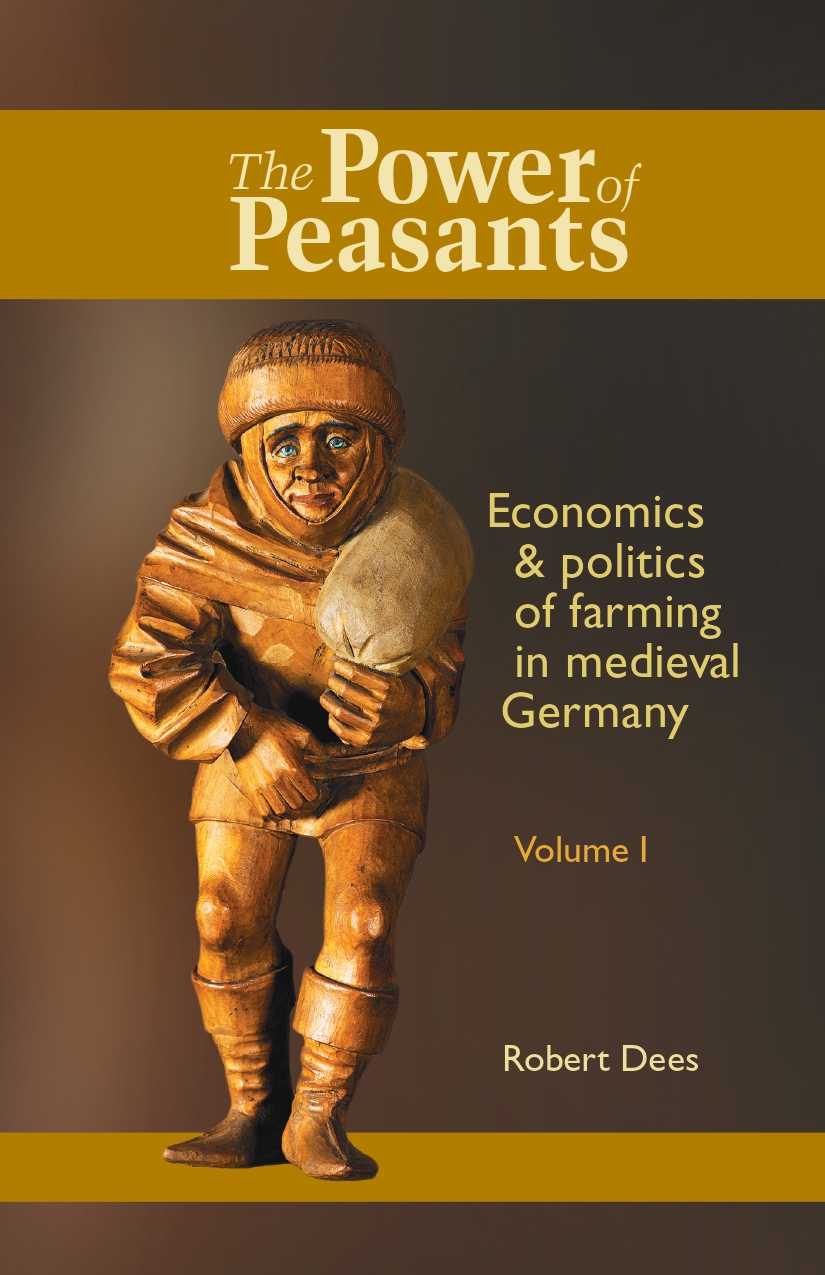Details
Bibliography, index, graphics
Format: Hardback, paperback, ebook
1,794 Pages
Edition: 1st
Year: 2023
Publisher: Commons Press
ISBN:
Hardback 2-volume set: 978-1-7374810-2-7
Paperback 2-volume set: 978-1-7374810-5-8
Ebook: 978-1-7374810-6-5
Robert Dees
The Power of Peasants
Economics & politics of farming in medieval Germany
Volume 1 & 2
Advances in agricultural production by farmers powered the great breakthroughs in civilization in Europe: the rise and the overthrow of Rome, the rise of medieval civilization, the overthrow of the feudal ruling classes in England and the Netherlands in the 1300s–1600s, and the ascent of capitalism. Through these revolutions, farmers won greater economic and political freedom, which they put to good use to make the most of nature’s bounty and thereby lay the foundation for the next advance in civilization.
But winning access to land, liberty, and prosperity required bitter struggles by farmers against the masters of society who, to maximize their own wealth and power, sought to reduce the producers to poverty and servitude. The farmers were decisive: in those countries, such as England and Holland, where the farmers won their freedom, they strengthened the townspeople in their fight against the feudal lords and tipped the scales in favor of victory. Where the peasants were defeated, as in Germany, so too were the cities; these countries fell back into more centuries of feudal depression. Looking at history from the perspective of the farmers and other working people allows us to understand why history took the course it did and better prepares us for battles that lie ahead.
“The increased rents, services, and debts imposed on the peasantry broke the back of the agrarian and therefore broader economy.”
“Stagnation and then decline in agricultural production explains the overall economic failure that after mid-century produced political tensions, falling population, unrest, witch hunts, hunger, plague, hyperinflation, and finally exploded into the Thirty Years War in 1618.”
“The Thirty Years War was the natural end product of the victory of the lords in 1389, 1440–60, and 1525. Everything about the war grew directly out of the social, economic, and political developments of the preceding century.”
“The function of anti-Jewish hatred was and is not to control the Jews, but to deceive and control the toilers.”
(Sold only as 2-volume set)
A “review of civilization’s events through the perspective of farmers…a powerful survey that does far more than recap common knowledge…surprisingly accessible, delightfully enlightening reading…. The often-startling, eye-opening, thought-provoking contentions are exceptional and hard-hitting…very highly recommended; ideally to a much wider audience than its scholarship, size, and subject would seem to indicate“.
D. Donovan, Senior Reviewer, Midwest Book Review
“Your agrarian and cultural-historical study is not only of fundamental importance for the circumstances in Memmingen and its surroundings, but through comparison with other European countries extremely exciting to read…. Your analysis, rich in detail, will acquire a very special meaning next year (500th anniversary of the 1525 Peasant War)…. A comprehensive appendix with chronology, money, weights and measures, and much more makes your study an important reference work…. We hope that your book will become known to a wide audience and find many interested readers.”
Günter Steiner, Senior Archivist, Augsburg State Archive





